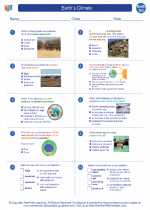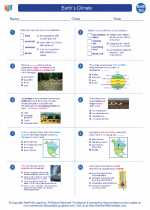Plantae: The Kingdom of Plants
The Plantae kingdom comprises all plants, including familiar organisms such as trees, flowers, and grasses. Plants are multicellular, eukaryotic organisms that are characterized by their ability to perform photosynthesis, which is the process through which they convert light energy into chemical energy to produce food. Here are some key points to help you study this topic:
Characteristics of Plants
- Cellular structure: Plants are made up of eukaryotic cells with cell walls composed of cellulose.
- Photosynthesis: They possess chlorophyll, a green pigment that enables them to carry out photosynthesis.
- Reproduction: Most plants reproduce sexually, using specialized reproductive structures such as flowers and seeds.
- Life cycle: Plants typically have a life cycle that includes alternation of generations, with haploid and diploid stages.
Classification of Plants
Plants are classified into several groups based on different criteria, including their reproductive strategies, physical characteristics, and evolutionary history. The major plant groups include:
- Bryophytes: Non-vascular plants such as mosses and liverworts.
- Seedless vascular plants: Plants like ferns and horsetails that have vascular tissues but reproduce via spores.
- Gymnosperms: Seed-producing plants like conifers and cycads that do not produce flowers.
- Angiosperms: Flowering plants that produce seeds enclosed within a fruit, including a wide variety of trees, shrubs, and herbaceous plants.
Ecological Importance of Plants
Plants play a crucial role in the Earth's ecosystems. They are primary producers, forming the base of the food chain and providing food and habitat for numerous other organisms. Additionally, plants are essential for maintaining the balance of atmospheric gases, particularly through their role in the carbon cycle and oxygen production.
Human Uses of Plants
Plants are valuable to humans for a multitude of purposes, including as a source of food, medicine, building materials, and renewable energy. Understanding the biology of plants has also led to advances in agriculture and biotechnology, with applications in crop improvement and pharmaceutical development.
Study Tips
To effectively study the topic of Plantae, consider the following strategies:
- Review the key characteristics of plants, including their cellular structure and reproductive processes.
- Learn the distinguishing features of the major plant groups, such as bryophytes, vascular plants, gymnosperms, and angiosperms.
- Explore the ecological and human significance of plants, and how they contribute to environmental sustainability and human well-being.
- Use diagrams and illustrations to visualize plant structures and life cycles, aiding in your understanding of plant biology.
- Engage in hands-on activities such as plant identification in your local environment or growing plants in a controlled setting to observe their growth and development.
By mastering the concepts and applications of plant biology, you will gain a deeper appreciation for the diversity and importance of the Plantae kingdom.
[Plantae] Related Worksheets and Study Guides:
.◂Earth Science Worksheets and Study Guides High School. Earth`s Climate

 Worksheet/Answer key
Worksheet/Answer key
 Worksheet/Answer key
Worksheet/Answer key
 Vocabulary/Answer key
Vocabulary/Answer key
 Vocabulary/Answer key
Vocabulary/Answer key
 Vocabulary/Answer key
Vocabulary/Answer key
